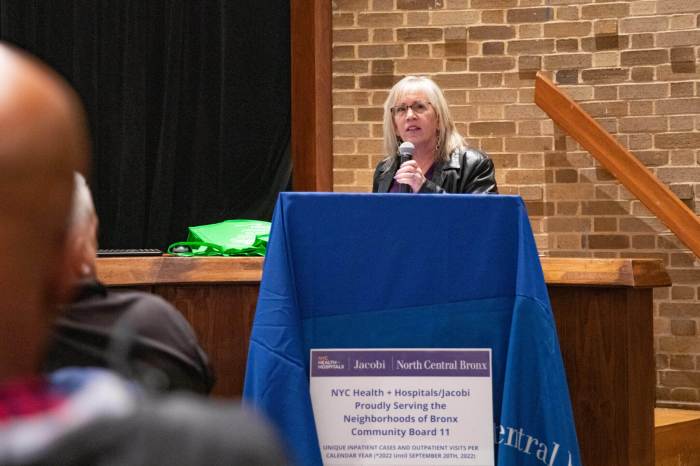“Armageddon had been averted, and thank God.” So said New York Sen. Charles Schumer in a written statement on Tuesday, expressing the collective relief undoubtedly felt by many of his colleagues, Democrats and Republicans alike, after the Senate averted a showdown vote on whether or not to change the rules to end filibusters in the case of federal judicial nominations.
Schumer, who along with several Democratic colleagues who also sit on the judiciary committee, has opposed a handful of the most radical of Pres. George W. Bush’s federal court appointments, and has diligently used the filibuster—a Senate tradition that allows a minority opposed to certain measures to continue debate, in effect blocking a final up-or-down vote, unless overridden by a vote of at least 60 members—to forestall those nominations.
The filibuster historically evolved in the Senate as rule serving as a check on one of the things that America’s early leaders
feared most about the relatively untested theory of democracy—the potential tyranny of the majority.
In the 1950s and ‘60s, the tool unfortunately was often used by Southern Democrats as a means of blocking progress on federal civil rights initiatives. In other eras—especially since the Republican takeover of Congress in 1996—it has exercised a moderating influence on Senate deliberations, and under a George W. Bush presidency and a Republican-controlled Congress it is universally viewed as the only way Democrats and progressives can stay in the game.
The Senate has historically styled itself as the world’s greatest deliberative body—and the tradition that extreme actions can be stopped by a parliamentary device requiring a supermajority (earlier in history it was a two-thirds vote rather than 60) has been fundamental to that conceit.
Preservation of the Senate’s traditional spirit of comity and compromise is the victory to which most senators who have stepped up to praise the eleventh-hour deal brokered by 14 centrists have pointed. Compromise is what keeps Congress moving, but let’s be honest—the difference is never truly split. As in the outcome of any other power struggle, there are losers, and from what is known with certainty about a very ambiguous compromise, the gay and lesbian community did not do well this week.
Some of our friends are suggesting that progressives got the better of the deal. Schumer issued a second statement Tuesday asserting, “The agreement is a shot across the bow to the president—don’t pick someone too extreme or you’ll run into trouble.” Joe Solmonese, president of the Human Rights Campaign (HRC), which bills itself as the community’s most potent advocate on Capitol Hill, declared, “This compromise preserves the ability to block extremist nominees. This will be particularly important when a nominee for the Supreme Court is named.”
It is difficult to take comfort in these exaggerated claims. Beyond the suggestion that some of the disputed ten or so Bush judicial nominations may not get the up or down vote that the president and the majority leader, Tennessee’s Bill Frist, have been demanding, the compromise offers nothing certain down the road, especially when it comes to a Supreme Court nomination. Frist’s threatened nuclear option is not “gone for our lifetime,” as the minority leader, Nevada’s Harry Reid, insisted.
In fact, the only tangible result of the centrists’ compromise is that three of the most controversial appointments, who drew the greatest fire from progressive groups and senators—Texas Supreme Court Justice Priscilla Owen, California Supreme Court Justice Janice Rogers Brown and former Alabama Attorney Gen. William Pryor—were cleared to get a Senate vote, making their confirmation likely.
Owen won confirmation on May 25.
Pryor’s potential advance is particularly troubling for the queer community. He has been a virulent foe of any measure of gay rights advancement. In a friend-of-the-court brief supporting the Texas sodomy statute when it was under review in 2003 by the U.S. Supreme Court, he compared homosexuality to “prostitution, adultery, necrophilia, bestiality, possession of child pornography and incest and pedophilia.” When Democrats blocked Bush’s initial attempt to put Pryor on the federal judiciary, the president made use of a congressional recess to give him a temporary appointment, since expired, on the 11th Circuit Court of Appeals in Atlanta. While on that court last year, Pryor was the deciding vote in rejecting an effort to have the full circuit panel re-hear a challenge to Florida’s ban on adoption by gay parents, which had been rebuffed by a three-judge panel. The ban thereby stood, and the Supreme Court refused to consider the case.
Decisions are being made about which of Bush’s most extreme judicial nominations are going to be given a pass, and it is telling and chilling that a nominee that Lambda Legal’s Kevin Cathcart has called “the most anti-gay federal judicial nominee in memory” has apparently been given a free ride by a group of 14 senators that includes prominent Democrats.
This is a defeat, and it is disingenuous to pretend otherwise.
HRC noted the decision on Pryor with “grave disappointment,” but its press release included none of the details on the Alabaman’s record and had an upbeat tone about vanquishing extremism wholly unwarranted by the facts in this situation. It may unfortunately be the case that HRC is so tied to its allies on Capitol Hill that it feels constraints about speaking out more forthrightly about a clearly disappointing turn of events. Fortunately, Lambda Legal and the National Gay and Lesbian Task Force—whose Matt Foreman said his hopes about the possibility of “constructive consultation” between the president and Congress on future appointments “are not high”—were more candid in pointing out our reversal of fortune.
We are in an era when Democrats, moderate Republicans and progressives must compromise with the powers that be to accomplish any of their goals. It is always unfortunate to have to countenance compromise on basic questions of human rights, but we need to make clear to the Democratic Party nationally that as it brokers questions on who wins and who loses, our community has to share in the riches as well as the disappointments.
gaycitynews.com


































